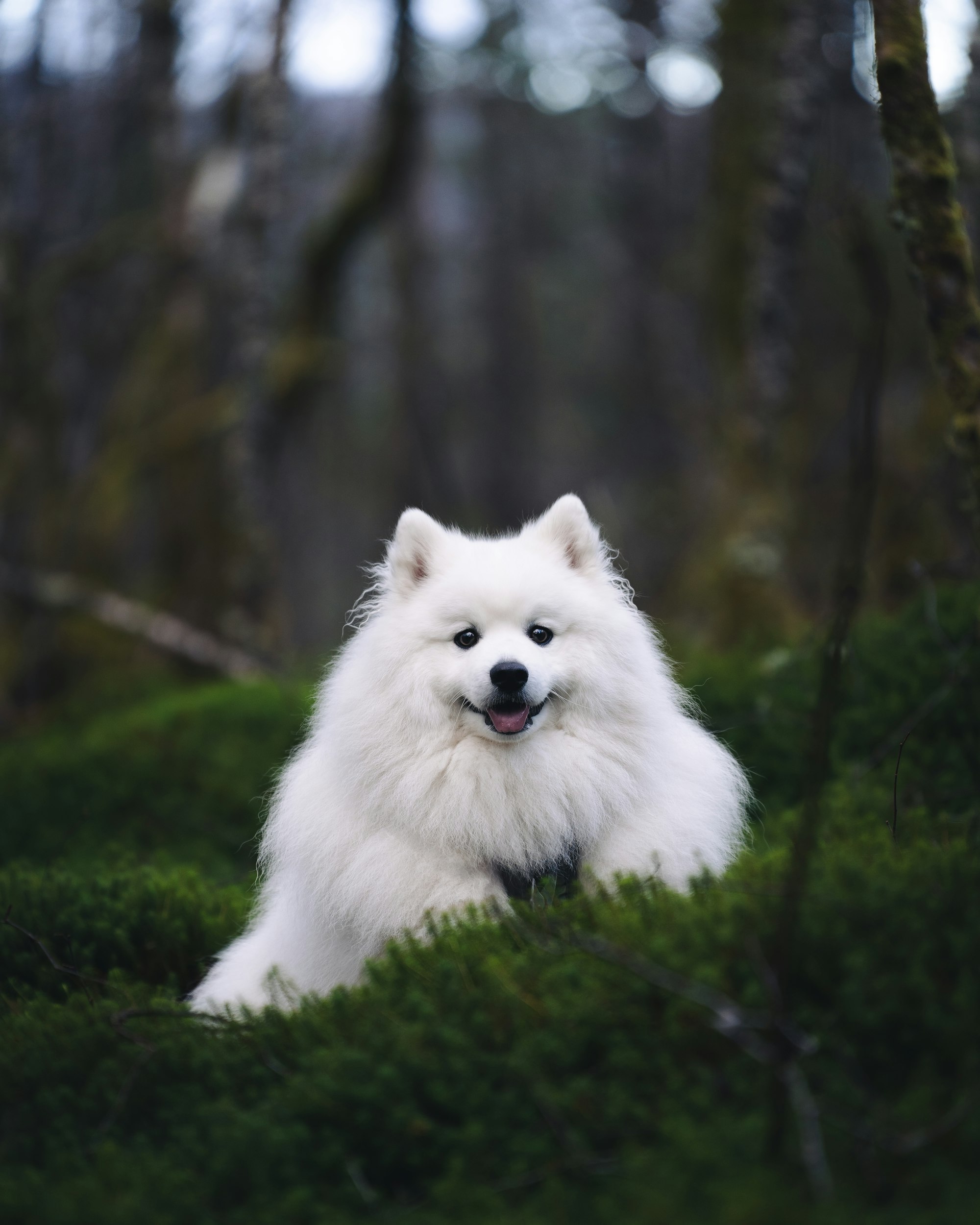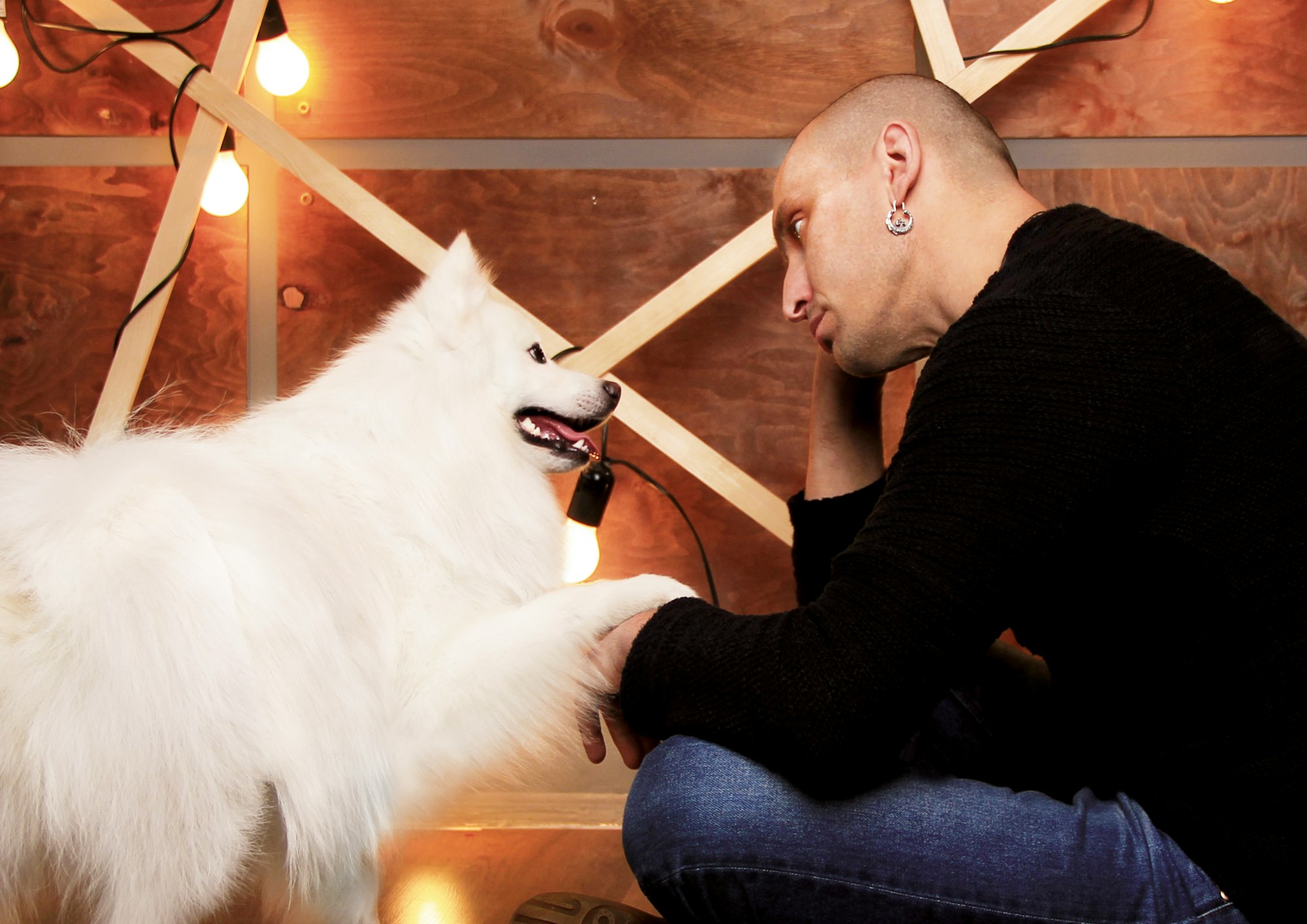If you're in search of a delightful and charming canine companion, look no further than the Japanese Spitz. With their fluffy white coats, bright eyes, and friendly demeanor, these dogs have captured the hearts of many dog lovers around the world. In this article, we'll take a closer look at the Japanese Spitz breed, from its history and characteristics to its care and training. So, let's dive into the world of these adorable pups!

Introduction to the Japanese Spitz
The Japanese Spitz is a small to medium-sized breed known for its distinctive appearance and friendly nature. With a lineage tracing back to the Siberian Samoyed and other Spitz breeds, they possess a strikingly beautiful pure white double coat that gives them an elegant and regal look.
A Brief History
The captivating journey of the Japanese Spitz dates back to 1921 when breeders in Japan set out to create a unique and endearing companion. Inspired by European Spitz breeds and their own native dogs, they embarked on a mission to craft a breed that embodied charm, intelligence, and loyalty.
Drawing influence from breeds like the Siberian Samoyed, the German Spitz, and the American Eskimo Dog, the Japanese Spitz was carefully bred over the years to develop its signature traits. These traits included its distinctive white coat, erect ears, and a friendly disposition that could seamlessly integrate with families and individuals alike.
Physical Characteristics
One of the most captivating features of the Japanese Spitz is its exquisite physical appearance. With a stunning snow-white double coat that seems to shimmer in the sunlight, this breed is a true head-turner. The coat is composed of a soft and dense undercoat that provides insulation, as well as a straight and sleek outer coat that exudes elegance.
The eyes of the Japanese Spitz are bright and expressive, radiating intelligence and curiosity. Their triangular ears stand erect, adding to their attentive and alert demeanor. In terms of size, these dogs generally stand between 10 to 16 inches at the shoulder and weigh around 11 to 20 pounds, showcasing their small to medium build.
The Japanese Spitz's tail is plush and carried over the back in a graceful curve, adding a touch of regality to their overall appearance. When you see a Japanese Spitz, it's hard not to be captivated by their picture-perfect beauty and charming presence.
Personality Traits
Beneath the stunning exterior of the Japanese Spitz lies a heartwarming personality that has won the hearts of dog enthusiasts around the world. These dogs are known for their affectionate and loyal nature, making them wonderful companions for individuals and families alike.
Intelligent and playful, the Japanese Spitz thrives on interaction and engagement. They love being a part of various activities, from a rousing game of fetch to a leisurely stroll in the park. Their adaptable and social disposition allows them to easily fit into various lifestyles, whether in bustling urban environments or serene rural settings.
Perhaps one of their most endearing traits is their gentle and patient demeanor, especially around children. Their kind nature makes them excellent family pets who are both protective and affectionate. Their intelligence also makes training a fulfilling experience, as they quickly pick up commands and behaviors.
The Japanese Spitz's personality is a blend of charm, wit, and companionship, making them a cherished addition to any household. Whether they're cuddling up indoors or exploring the outdoors with boundless energy, these dogs have a way of melting hearts and bringing joy to everyone they meet.
Caring for Your Japanese Spitz
Grooming Needs
Maintaining the Japanese Spitz's pristine coat requires regular brushing to prevent tangles and matting. They shed moderately throughout the year and more heavily during shedding seasons. Bathing should be done occasionally to keep their coat clean and fluffy.
Exercise Requirements
Despite their small size, Japanese Spitz dogs have moderate energy levels and require daily exercise. A brisk walk, interactive playtime, or even some agility training will help keep them physically and mentally stimulated.
Dietary Considerations
Providing a well-balanced diet is crucial to the health of your Japanese Spitz. Consult your veterinarian to determine the appropriate portion sizes and nutritional requirements based on their age, size, and activity level.
Health and Common Issues
While Japanese Spitz dogs are generally healthy, some breed-specific health concerns may include dental issues, patellar luxation, and certain skin conditions. Regular vet check-ups and a good dental care routine can help prevent potential problems.
Training Your Japanese Spitz
Training your Japanese Spitz is an enriching experience that deepens your bond and fosters a well-behaved and happy companion. With their intelligence and eagerness to please, these dogs are quick learners, making the training process enjoyable for both of you.
Basic Commands
Begin with foundational commands like "sit," "stay," "come," and "down." Use positive reinforcement techniques, such as treats and praise, to encourage good behavior. Consistency is key – practice these commands daily in short sessions to reinforce their understanding.
Socialization
Early socialization is crucial for your Japanese Spitz's development. Expose them to various people, animals, environments, and experiences to build their confidence and teach them appropriate behaviors. This helps them grow into well-adjusted and friendly adults.
Obedience Training
As your Japanese Spitz becomes familiar with basic commands, you can progress to more advanced training. Teach them commands like "heel," "leave it," and "drop it." Incorporate fun activities like agility exercises to keep their minds engaged and their bodies active.

Positive Reinforcement
Japanese Spitz dogs respond exceptionally well to positive reinforcement. Use treats, praise, and affection as rewards for good behavior. Avoid harsh training methods, as they can lead to fear and separation anxiety. Instead, create a positive and encouraging environment that motivates your furry friend to learn.
Consistency and Patience
Consistency and patience are essential when training your Japanese Spitz. Keep training sessions short and focused, and practice regularly. Remember that every happy dog learns at their own pace, so be patient and celebrate even small achievements.
Socialization
Socialization is an ongoing process. Expose your Japanese Spitz to new situations, people, and animals throughout their life. This ensures they remain confident and well-mannered in various situations.
Professional Training
If you encounter challenges during training or wish to refine specific skills, enrolling your Japanese Spitz in obedience classes can be highly beneficial. Professional trainers can provide guidance, structure, and expert advice to help you and your pup succeed.
By approaching training with positivity, consistency, and patience, you'll foster a strong and cooperative relationship with your Japanese Spitz. Remember, training is not just about instilling obedience – it's about nurturing a well-rounded, happy, and well-adjusted companion that you can enjoy for years to come.
Living with a Japanese Spitz: Family and Companionship
Bringing a Japanese Spitz into your life means inviting a bundle of affection, loyalty, and companionship. These dogs thrive on forming strong bonds with their human families and are especially attuned to their needs. Whether you're a single individual, a couple, or a bustling family, the Japanese Spitz fits right in.
Their gentle and patient nature makes them exceptional companions for families with children. They have a remarkable ability to understand and adapt to the energy levels of the household, making them both playful playmates and calm cuddle buddies. Their friendly demeanor ensures that they get along well with all family members, fostering an environment of warmth and togetherness.
Introducing Your Japanese Spitz to Other Pets
If you have other furry friends in your household, introducing your Japanese Spitz to them requires a thoughtful and gradual approach. These social dogs generally get along well with other pets, but a smooth transition is crucial to ensure harmony.
Begin by allowing your existing pets and the Japanese Spitz to become acquainted from a distance. This can involve scent swapping – giving each pet an item with the other's scent – to familiarize them with each other's presence. Slowly progress to controlled face-to-face interactions in a neutral space, ensuring all pets are calm and relaxed.
Positive reinforcement is key during these interactions. Reward good behavior with treats and praise, and closely monitor their interactions to prevent any signs of aggression or stress. With time, patience, and careful supervision, your Japanese Spitz can build positive relationships with other pets, enriching their lives with companionship and play.
Navigating these two aspects of living with a Japanese Spitz – enjoying their companionship and ensuring harmonious interactions with other pets – contributes to a fulfilling and joyous life with these charming and lovable dogs.
Traveling with Your Furry Friend
Embarking on adventures with your Japanese Spitz can be a delightful experience, thanks to their manageable size and adaptable nature. Whether it's a road trip or a vacation, your furry friend can be a fantastic travel companion.
Before you hit the road, make sure you're prepared to cater to their needs. Pack essentials like their favorite food, portable water bowl, interactive dog toys, and any medications they might need. A comfortable and secure crate or carrier ensures their safety during travel and provides them with a cozy space to relax in.
During breaks, allow your Japanese Spitz to stretch their legs and relieve themselves. Choose pet-friendly accommodations and research places where your furry friend can join you for outdoor activities or sightseeing. Always keep them leashed when exploring new places to ensure their safety and the safety of others.
Traveling with your Japanese Spitz not only creates lasting memories but also strengthens your bond. As you explore new environments together, your furry friend's enthusiasm and companionship will make every journey a memorable one.
Choosing the Perfect Japanese Spitz Puppy
Selecting the ideal Japanese Spitz puppy requires careful consideration and research. This decision lays the foundation for a joyful and fulfilling companionship that can last for many years.

When meeting potential puppies, observe their behavior and temperament. Look for a puppy that is curious, playful, and engages positively with people. Check their health records and ensure they have been raised in a clean and caring environment. A reputable breeder who prioritizes the well-being of their dogs is crucial in acquiring a healthy and happy puppy.
Examine the puppy's physical attributes, including clear eyes, a clean coat, and an alert demeanor. A healthy puppy will have a glossy coat, clear eyes, and exhibit overall vitality. Take your time to interact with different puppies and choose the one that resonates with your heart and lifestyle.
Choosing the perfect Japanese Spitz puppy is the first step in a lifelong journey of companionship. With careful consideration and a commitment to their well-being, you're setting the stage for a loving and joyful relationship that will enrich both your lives.
Average Price
When considering bringing a Japanese Spitz into your life, it's important to be aware of the potential costs associated with this delightful breed. The price of a Japanese Spitz puppy can vary depending on factors such as location, breeder reputation, lineage, and the puppy's overall quality.
On average, a Japanese Spitz puppy can cost anywhere from $1,000 to $2,500. Keep in mind that this price range is a general estimate and can fluctuate based on the aforementioned factors. While the upfront cost of purchasing a puppy is a significant consideration, it's important to also budget for ongoing expenses such as dog food, grooming, veterinary care, training, and supplies.
When investing in a Japanese Spitz, it's recommended to prioritize reputable breeders who prioritize the health and well-being of their dogs. Avoid deals that seem too good to be true, as they could potentially indicate unethical breeding practices. A well-bred and well-cared-for Japanese Spitz puppy is worth the investment, as it ensures you're bringing home a healthy and happy furry companion who will bring joy to your life for years to come.
Conclusion
In conclusion, the Japanese Spitz is a charming and affectionate breed that brings joy and companionship to any household. Their intelligence, loyalty, and striking appearance make them a beloved choice among dog enthusiasts. If you're seeking a devoted and playful furry friend, the Japanese Spitz might just be the perfect addition to your life.
FAQs About Japanese Spitz
Q1: Are Japanese Spitz dogs hypoallergenic?
- No, they are not hypoallergenic, as they shed moderately.
Q2: Do Japanese Spitz dogs get along with other pets?
- With proper introductions, they can coexist peacefully with other pets.
Q3: Are they suitable for apartment living?
- Yes, Japanese Spitz dogs adapt well to apartment living as long as they receive sufficient exercise.
Q4: What is their average lifespan?
- Japanese Spitz dogs typically live between 12 to 16 years.
Q5: Do they require professional grooming?
- Regular brushing at home should suffice, but occasional professional grooming can help maintain their coat's quality.